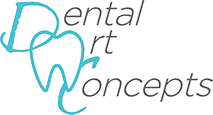Dental Implants Are a Solution to Replacing Lost Teeth

When it comes to your smile, taking care of your teeth is an investment in your oral health that pays many dividends. With tooth loss, missing teeth can affect you in multiple ways. Even losing just one tooth can cause problems. Some of that is emotional, as people often feel self-conscious and embarrassed to smile if a prominent tooth is missing, but losing a tooth can also impact your oral health. There are a variety of reasons that a tooth may be lost.
What Causes Tooth Loss?
- Tooth Decay
- Gum Disease
- Dental Injury
- Family History/Genetics
- Poor Diet
- Lax Oral Hygiene
Replacing a missing tooth early on is important, and it's not just about how you look. It also impacts your mouth, jaw, and body as they work together to keep you functioning. Anyone can lose teeth, not just the elderly. It often happens gradually, starting when you are younger and worsening over time if left untreated or there are no changes made.
What Happens When a Tooth Is Lost?
Each tooth is a placeholder and exists for a reason. When you lose one tooth, the rest of your teeth must work harder, placing stress on them and wearing them out sooner. As the remaining teeth shift to fill the tooth gap, it can make cleaning between them much more difficult because you can't get in to remove harmful plaque and develop tartar. The extra space left behind from the missing tooth tends to harbor bacteria that can spread to nearby teeth. Proper brushing and flossing are essential to prevent gum disease that could lead to more tooth loss.
If a tooth is lost, you may find yourself experiencing the following:
- An altered bite alignment as the upper and lower jaws don't meet correctly, causing problems with your jaw joint and tooth sensitivity.
- The jawbone deteriorates when the tooth root structure is gone, leaving your facial profile sunken and misshapen.
- Losing teeth can impact your diet, making it difficult to eat healthy foods when it hurts to chew and causing problems digesting your food if you're unable to break down the foods more with your mouth.
- Pronunciation is affected, leading to slurred words, lisping, or spitting when talking.
- You can have lower confidence because of problems such as incorrect speech, chewing, and appearance.
Why Choose Dental Implants?
If you have lost one or more teeth, it is important to replace them for your dental and general health. Common tooth replacement options include a fixed dental bridge, removable partial dentures, and dental implants. Thanks to advances in dentistry, dental implants are considered the gold standard for tooth replacement. In particular, implants are rooted in the jaw, preserving jaw bone health by replacing the lost tooth root.
Dental implants are the only tooth replacement option that replaces and integrates the tooth root. While dental bridges and dentures can give you a beautiful smile, your jawbone will keep deteriorating and will require adjustment or replacement in the years ahead. It is where dental implants shine as they maintain jawbone health along with your youthful appearance by preventing the facial sagging effect that can occur with other dental options.
Dental Implants Benefits:
- They are the most stable tooth replacement because they are anchored into the jawbone.
- Won't shift around in the mouth or fall out.
- Don't require daily attachment with a dental adhesive as dentures do.
- Your diet stays the same with 100% bite capacity.
- Dental implants don't require a change in brushing and flossing.
- Look and feel natural in your mouth.
- Don't take time to get used to them since they look, feel, and function like your own teeth.
Implants Are a Three-Part Restoration:
- A biocompatible titanium post is placed into the jawbone (acting as a tooth root for stability).
- An abutment piece is attached to the top of the post (acting as a connector).
- It is then topped with a dental crown, dental bridge, or denture for optimal security.
As you can see, dental implants are most like your natural teeth. If you want help replacing the missing teeth in your smile, dental implants are a proven dental restoration that can have you speaking, eating, and looking your best once again. Give our team a call to learn more!



